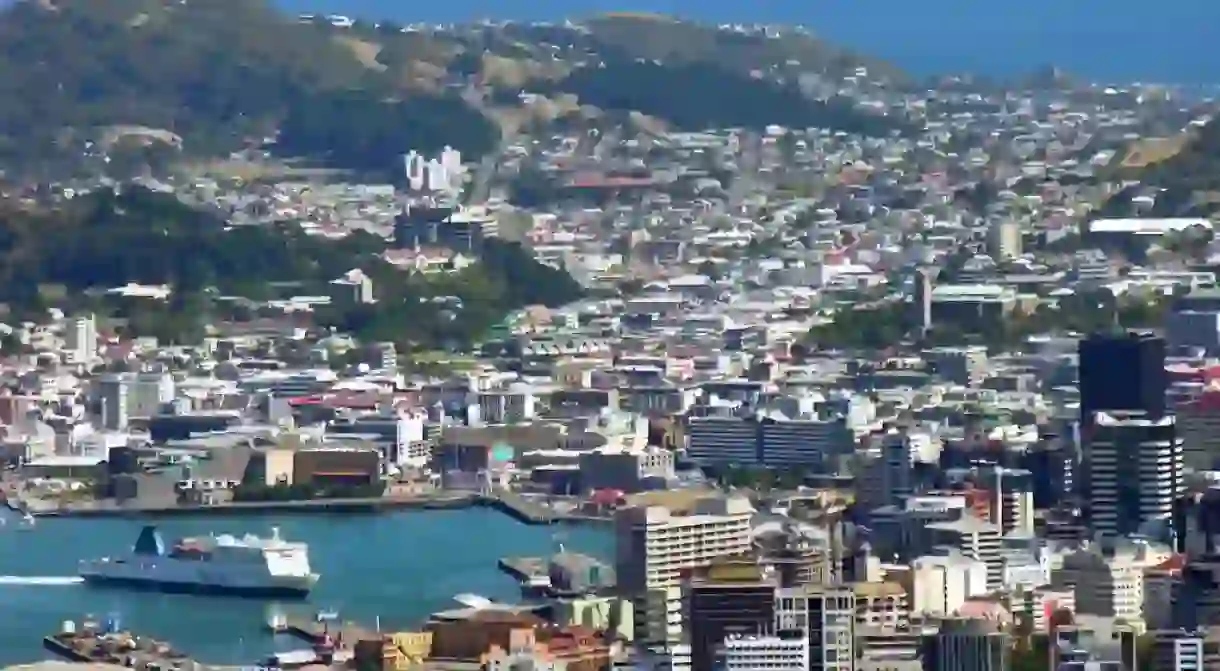How To Navigate Transport in Wellington, New Zealand

Wellington is New Zealand’s capital and perhaps its most vibrant, diverse and eclectic city. There is always something new and interesting to see here, so visitors should make sure that they are prepared and ready to do a lot of nipping about. Here is our guide to using public transport in this little nation’s capital city.
The public transport available in New Zealand, whilst not terrible, is – as a whole – somewhat lacking when you compare it to some other developed nations. Happily though, as in Auckland and Wellington, the public transport is slightly more refined than many other places in this picturesque and laid-back country. Whether you need to catch a ferry, shoot off in a train or simply get from Newtown to Kelburn on the bus, Wellington has you covered.
The cable car
Wellington’s most famous mode of public transport is arguably the least useful, and is more of an attraction in itself than anything. However, the cable car is a novelty and, in its defense, it will save you a step or two if you fancy making your way from Lambton Quay, up the hill, to Kelburn. It has been the savior of many an inebriated university student making their way home from town at 6am.

Train
Wellington Station is the busiest station on the Wellington rail network by far, with trains arriving and departing every few minutes at peak times. The next busiest stations are Porirua, Waterloo (in Lower Hutt) and Johnsonville. Most stations are served by only one line. All in all there are 49 stations across this network, which is quite extensive for such a small capital city. It also means that you can get, mostly, close to anywhere in the region that you’d care to get to. There are two major rail corridors in Wellington. The North Island Main Trunk runs along the western coastline, passing through Porirua and Paraparaumu to Waikanae on the Kapiti Coast (known as the Kapiti Line; the Wairarapa Line runs along the edge of Wellington Harbour and then up the Hutt Valley, passing through both Lower and Upper Hutt (known as the Hutt Valley Line). Less frequent services continue through the rural Wairarapa, stopping at a number of small towns before terminating at Masterton.

Bus
The majority of buses in the Wellington area are powered by diesel, but GOWellington also had 60 trolleybuses that it operated within Wellington city. The trolleybus network was introduced between 1949 and 1964 to replace Wellington’s trams and closed down in October 2017. There was a lot of contention with this decision as many looked on choosing to use new, diesel-powered buses as a step backward. The bus is by far the cheapest and easiest way to navigate Wellington, and will take you to all the surrounding bays and points of interest in no time at all. Make sure you grab yourself a Snapper card if you’re going to be in the capital for any length of time, so that you can easily tap in and out of buses.

Ferry
Although Wellington is surrounded by water there are comparatively few ferries running around its bays. This is, in part, due to the fact that Wellington city is fantastically accessible just by walking or cycling. Even most of the bays are only an easy – and picturesque – bike ride away. So, the demand for local ferries isn’t high, but there are a couple that still operate. There are daily ferries between central Wellington and Days Bay on the eastern coast, near Eastbourne, serving Seatoun at peak times from 3 April 2008; and the Harbour Explorer Excursion at weekends, also serving Petoneand Seatoun.
Wellington is home to New Zealand’s most famous and probably most essential ferry; The Interislander. This ferry, whilst not part of the Wellington public transport system is key for anyone wanting to cross the Cook Strait to the South Island with their car. The service runs from Wellington to Picton.














